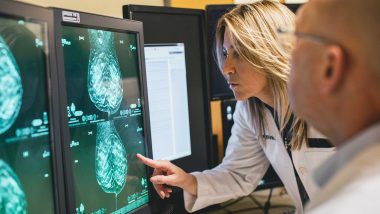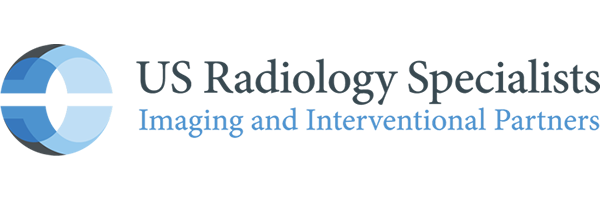Around 1 in 8 women in the United States will be diagnosed with breast cancer during their lifetime, and there’s no proven path to prevention. However, clinical research has shown that a healthy diet and regular exercise may lower the risk of breast cancer for women. While you can’t control all your risk factors for breast cancer, you can change what you eat and how often you exercise. Even better, making healthy choices and balancing diet with exercise can also lower your risk for other conditions, like heart disease. Bottom line: diet and exercise play an essential role in maintaining your health, including your breast health.
You Can’t Control All Risk Factors for Breast Cancer
Some risk factors for breast cancer can’t be changed. These include:
- Being a woman
- Growing older
- Having certain genetic mutations, such as the BRCA1 and BRCA2 genes
- Having a family history of breast or ovarian cancer
- Having dense breast tissue
- Receiving radiation to the chest before age 30
- Starting menstruation before age 12 or menopause after age 55
If you know you have some of these risk factors, it’s important to try to lower your risk in other ways and control for the risk factors you can change. Adjusting your diet, getting more exercise and losing weight may help reduce overall breast cancer risk.
How Does Exercise Play a Role in Breast Cancer Risk?
Physical activity can help with weight management and also lower your risk of breast cancer. While there are a variety of factors that may influence your health, many clinical studies have demonstrated a link between exercise and breast cancer risk.
Research shows that women who exercise regularly have a lower incidence of breast cancer than women who do not exercise. In fact, a study of women who walked daily for one hour per week had a 23% lower long-term breast cancer risk than women who did not.
Additionally, in a study of 100,000 women, those who engaged in regular physical activity over the prior four years reported a 10% lower risk of breast cancer. Another study found that staying active through menopause, even with moderate exercises, helped reduce breast cancer risk into older age.
Committing to healthy lifestyle habits, including adding more exercise to your schedule, can be a positive, preventive first step. According to the American Cancer Society, moderate or vigorous physical activity can make a difference. Between 2.5 and 5 hours a week of moderate activity is recommended, and can include the following activities:
- Brisk walking
- Cleaning the house
- Dancing
- Hiking
- Riding a bike
- Low-intensity sports, including tennis and golf
- Rollerblading
- Water aerobics
Making exercise a part of your routine can potentially reduce your risk for breast cancer and a range of other chronic illnesses, including hypertension and heart disease.
Research Shows Diet May Affect Breast Cancer Risk
Although research in the field is ongoing, several studies show that women who consume a healthy diet high in fruits, vegetables and whole grains, and low in red meat and processed, fatty and sugary foods, have a lower risk of breast cancer. Additional research found that women who had breast cancer and ate a vegetable-heavy diet were more likely to survive years after treatment ended.
The nutrients and high fiber found in these diets are likely a part of their protective benefit. Specifically, one study found that favoring certain food groups (vegetables and fruits, soy and cheese) and avoiding others (red and processed meats) may significantly lower overall breast cancer risk.
Other healthy choices, like portion control, minimizing alcohol intake and cutting down on processed and sugary snacks, can also improve overall health, including breast health. Importantly, a healthy diet can help with weight control and weight loss. Research shows that weight gain in mid-life, especially after menopause, increases the risk of breast cancer.
Read More: 8 Common Breast Cancer Myths Debunked
Foods That May Reduce the Risk of Breast Cancer
If you want to adjust your diet to help lower your risk of breast cancer, here’s what to look for:
- The American Cancer Society recommends a diet high in plant foods and low in animal products and refined carbohydrates. The ACS also suggests a Mediterranean diet, which is high in fruits, vegetables, whole grains, fish and olive oil, and low in red meats and added sugars.
- Focus on high-value nutrients found in whole grains, leafy green vegetables, nuts and seeds, and vegetable oils.
In general, limit processed fruit juices, refined grains, potatoes and other starchy sugars. - In general, a healthy diet centered around breast cancer prevention looks like a heart-healthy diet, which means that you can improve your cardiovascular and overall health while lowering your risk for breast cancer.
Read More: The Best Thing I Did Was Get My Annual Mammogram
Recipes to Get Started
Changing your diet can be hard for many people, but you don’t have to go vegan or buy expensive kitchen equipment to get started eating healthier. The American Cancer Society, American Heart Association and U.S. Department of Agriculture post healthy, affordable and easy-to-make recipes online. Some recipes are healthier versions of many classic dishes, and others include creative ways to work plenty of fruits and vegetables into your diet, such as:
- Mango, avocado and black bean salad
- Triple berry protein smoothie
- Broiled asparagus spears with lemon
Reducing Breast Cancer Risk Through Annual Screening
While making balanced choices with diet and exercise is vital to maintaining your good health, keeping up with annual screening mammograms is the first line of defense against breast cancer. In clinical studies, annual mammograms have been proven to detect breast cancers earlier at stage 0 or stage 1 — improving treatment options and survival outcomes in women.
Screening is the best measure of prevention and saves more lives. When you combine this essential annual well visit with a healthy diet and exercise, you are taking positive, proactive steps to manage your personal risk. You can trust the team at Charlotte Radiology to provide expert mammography services, exceptional patient care, and convenient breast center locations so you can make annual screening yet another healthy habit.



